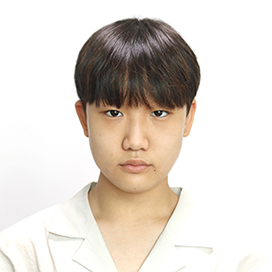![[People in Korea wearing a mask indoors. Photo credit: Andrew Ro]](https://cdn.heraldinsight.co.kr/news/photo/202302/1952_2976_5116.jpg)
South Korea is considering ending its indoor mask policy as the number of COVID-19 cases in the country have decreased significantly.
The government has been gradually lifting restrictions and allowing the resumption of more activities as the number of daily cases has dropped.
The decision to end the indoor mask policy would be based on the continued decline in cases and the progress of the country's vaccination campaign.
Following the implementation of the rule in October 2020, Korea is currently the only OECD member state to enforce the indoor mask mandates.
Earlier in December, the government declared that masks would no longer be required, and only merely recommended in public settings, with the exception of high-risk establishments including hospitals, nursing homes, pharmacies, and public transit, if two out of four criteria are met.
The four requirements are stable daily infection rates, more specifically, consistently decreasing infection rates over a two-week period; a decrease in the number of critical cases and fatality rate; adequate ICU bed capacity to treat critically ill patients; and booster vaccination coverage among the elderly.
Due to persistent concerns regarding potential appearances of novel variations in the neighboring country, the Korea Disease Control and Prevention Agency (KDCA) is nevertheless keeping a close eye on the stream of diseases from China.
According to a recent study by the Korea National Institute of Health (NIH), 98.6% of the population had antibodies against the coronavirus spike protein either from vaccination or acquired immunity following infection.
The study was performed between December 7 and December 22 with 7,528 participants.
Following prior infections, antibodies were produced by 70% of them.
Despite its prior plans to actively examine reducing the regulations, if the number of COVID-19 cases and hospitalizations decline a stable downward trend, the administration has been cautious about eliminating the indoor mask requirement.
South Korea implemented a strict mask-wearing mandate as the country struggled to control a surge of COVID-19 cases.
The guidelines required people to wear masks in crowded indoor spaces, such as public transportation and large retail stores.
South Korea's COVID-19 policy has been generally considered successful in terms of controlling the spread of the virus.
The country has implemented a wide range of measures, including widespread testing, contact tracing, and isolation of confirmed cases, which have helped to keep the number of new infections relatively low.
Additionally, South Korea has also been able to avoid severe lockdowns as seen in other countries, allowing its economy to remain relatively stable.
However, the situation is still evolving and the country still faces challenges such as new variants of the virus.

Andrew Ro
Grade 10
Seoul International School

